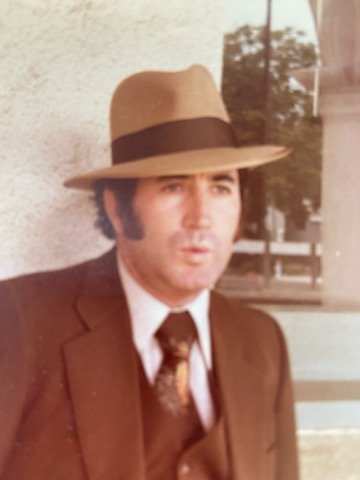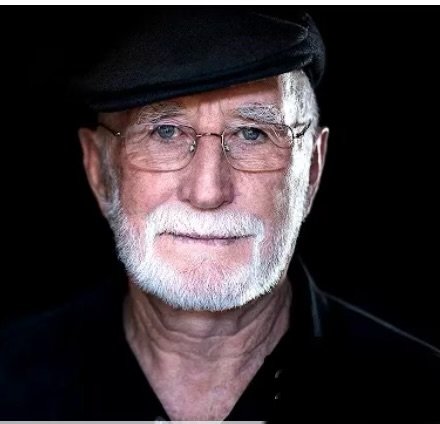The World’s Most Prolific Drug Smuggling Pilot Becomes a Voiceover Artist For His Book, “Smuggler”
By Keith Brunson
Roger Reaves was born in 1943 in southern Georgia and grew up dirt poor.
But his instincts expanded amid his poverty. He dreamed of the nice things that a wealthy man could enjoy. And farming wasn’t providing the life that Roger wanted, so he started making moonshine.
“I made thousands of gallons of moonshine, and it really paid off.” At 21, Roger got his pilot license with the intent of becoming a missionary pilot ferrying men of the cloth to Central America.
But, in 1973, Roger’s original intent changed when he agreed to smuggle 300 pounds of marijuana piloting a small Cessna 182. It paid $10,000. No handling of the product, “just an air taxi job,” No guns. No violence. “Just flying,” he tells me. Next, Roger bought a Cessna 207 and flew 1100 pounds of marijuana, and it paid $40,000. “That sounded pretty good to me,” says Roger. And he continued flying marijuana for eight years.
But in 1980, Roger met purely by happenstance at a party, Jorge Ochoa, the brains behind the Medellin Cartel. And that evening, Jorge introduced Roger to the infamous Pablo Escobar. That chance meeting made Roger the original pilot for the Medellin Cartel headquarters out of Columbia.
From 1980 to 1982, Roger flew cocaine for the cartel. As the demand for cocaine increased, Roger hired TWA pilot Barry Seal. The movie “American Made” depicts Barry, played by Tom Cruise. “And Barry used Mena, Arkansas as his safe haven to land.”
Roger’s final load was a ton of cocaine worth $400 million, and he did that by barge in Australia. But in 1982, Roger was caught. This began what became a 33-year stint in prison.
During prison, Roger escaped five times but was always captured and, on one occasion, was punished by being placed in what we know of as “the hole,” which Roger refers to as “the shoe.”
During prison, Roger became an avid reader. He read 3,000 books, and this led to Roger becoming a writer. It was in prison that he authored his memoir “Smuggler.” Roger tells me, “I actually wrote it to tell my grandchildren the full story because I didn’t ever think I would see them again.”
But Roger had been cleaned out financially due to his crimes. The government confiscated (25) airplanes, (7) farms, a mansion worth $15 million, and all his cash. So, Roger had to create income. He did that by self-publishing the book he wrote in prison. The response was overwhelming. Then, he self-produced his audiobook from his bedroom with no post-production, producer, or knowledge of how to make an audiobook. And again, the response has been tremendous.
Roger was not always well-read, but in prison, he became a reader and developed a strong affinity for literature. “A lot of books have been written in prison,” he says, “all the way back to 200 years ago when John Bunyan wrote “Pilgrim’s Progress.”
It was in prison that Roger learned he could do more than fly. He was a natural storyteller. Writing is one thing, but narration is an art form all its own. “It was challenging to get it perfect for the listener, and so the production process took a Very long time to get it just right.”
The audiobook “Smuggler” is 25 hours of content. It includes a story about him being shot down and tortured in a Mexican prison. It chronicles his lifelong obsession with money and adventure. And it’s blunt with the treatment that prisoners endure.
Through all this, his wife, Marrie, has been with him. Born in Holland, Marrie married Roger in 1964. She never flinched at the decades of waiting for the love of her life.
“I would never do what I did all over again,” says Roger, “because no amount of money is worth spending over 30 years away from your lovely family.”
Now, as would be typical, Hollywood has come calling. Making a movie deal that is attractive and authentic has been met with challenges. “I’m ready to do it, but it has to be a producer who will do what they say, just as I always have with everything I have ever done, written or spoken.”
Roger, at this writing, is approaching 80 years old in January. “There’s more runway behind me than there is in front of me,” he says. “I would love to bring this story to the screen, but I cannot wait for years.” Roger is right. To consummate a motion picture or documentary can take years to complete, and Roger is aware That scenario will not work. “If I’m fortunate, I’ve got 15 summers left and would like to enjoy what life God has left to give me.”
So, from a poor Georgia farmer to a wealthy drug smuggler, the inmate to a now free man is telling his story; Roger Reaves is, in fact, a fascinating man. Here’s to hoping that he’s recognized for his storytelling ability using his beautiful voice and that he can once and for all…take his storytelling abilities to the bank.
Keith Brunson is a professional writer and host of The Voice Choice https://www.thevoicechoice.tv
































